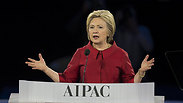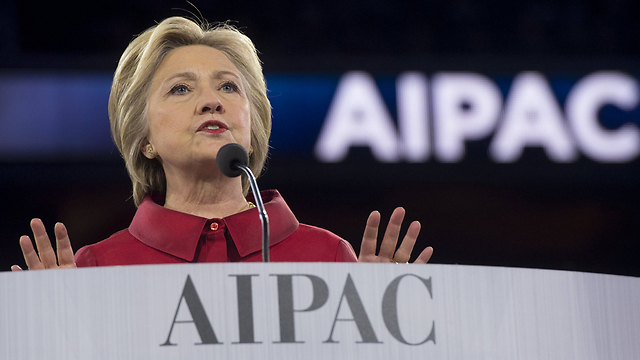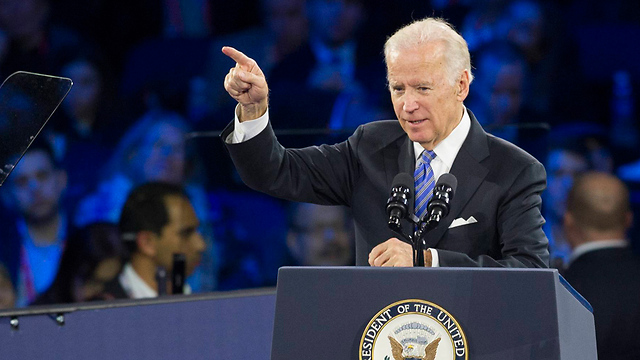
AIPAC polarizing US Jews
Op-ed: The purportedly bipartisan pro-Israel organization has become increasingly identified with right-wing politics, and its recent conference provides evidence of that.
The climax of the AIPAC conference this week was undoubtedly when the audience rose and applauded Donald Trump's harsh belittling of President Barack Obama: "the worst thing to happen to Israel … and you know it."
Everyone understood that something had happened in the Jewish community: Trump had transformed from the politically maligned and morally offensive candidate to the desirable one in the eyes of many of the conference attendees. Amongst those who cheered were those who felt embarrassment, but others felt a sense of release—as if they were saying, "Enough hiding behind political correctness already."
The largest moment of embarrassment was reserved for the AIPAC leadership. At the unpleasant final note of the conference, the organization's leadership, headed by its president, Lillian Pinkus, came out and apologized for insulting the president. Pinkus expressed her disappointment with the cheers which Trump had received.
The liberal Jewish magazine Tablet criticized Trump's invitation to the conference and wrote in an editorial that AIPAC's conduct exposes Jews to anti-Semitism, divides Jews and damages their moral image.
The AIPAC conference events are a symptom of the deep process that is taking place in American Judaism. AIPAC always prided itself on being bipartisan. For them, support of Israel was an issue that didn't depend on political leanings. It has not been thus in recent years.
AIPAC's support of Israel is perceived by many in the American capital and media as support of fundamentalist, right-wing Israel. Many liberals claim that the Israeli right and the Republicans have taken over AIPAC, which has become the "Netanyahu lobby."
That's how it was in the debate over the Iranian nuclear program, in which the organization sided with Netanyahu against the government. "The Iranian nuclear issue was a watershed moment in AIPAC's transformation to a right-wing organization," a senior official in Washington told me.
Trump's performance at AIPAC was perhaps a new peak for the gaping distance between Jewish liberals and the hard pro-Israel lobby. While Hillary Clinton and Vice President Joe Biden's speeches at the conference were received with cheers, especially when they talked about close security ties between the US and Israel, both of them emphasized, directly and indirectly, that they preferred the universal Israel to the religious, tribal Israel.
Important Jewish liberals have become aggressive critics of AIPAC in recent years. Some do so with unbridled rhetoric. The fundamentalists amongst them go through a process of disengagement from Israel as defining their Judaism, and condemning AIPAC becomes a litmus test of progressive Americanism for them.
It wasn't for nothing that Bernie Sanders declined to appear before AIPAC, which is considered by many of his supporters to be a fundamentalist right-wing body. The AIPAC leadership's embarrassment and their condemnation of Trump's pronouncements are further evidence of the Jewish American establishment's divided mind.
Amongst AIPAC's Republican supporters are those who hope that Trump will be elected president and that support of Israel will be clear and "without reservations." Yet there are also many Democrats in AIPAC who are hoping that Clinton will be elected and return Jews and the Israeli question to the center of the political map.
Yossi Shain is the Romulo Betancourt Professor of Political Science at Tel Aviv University.












